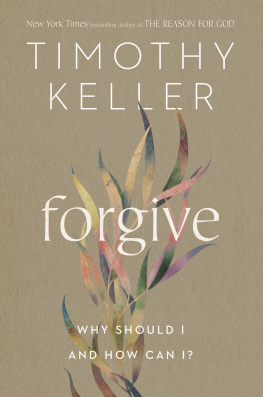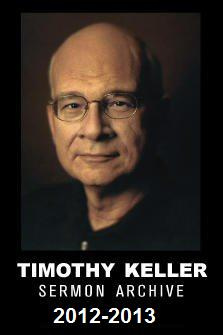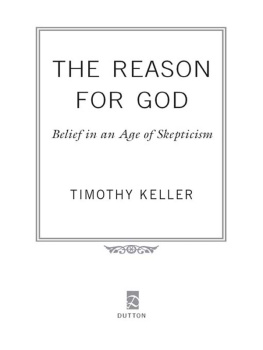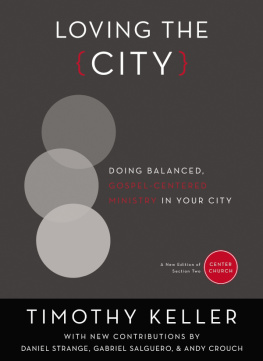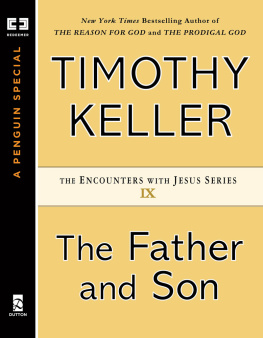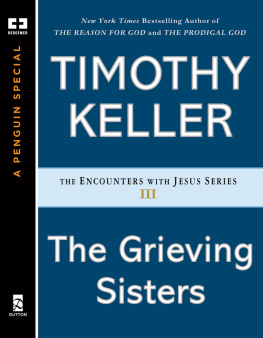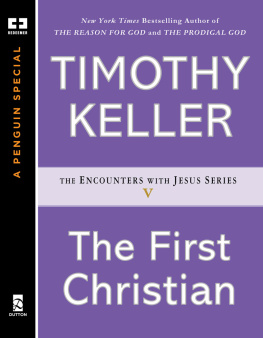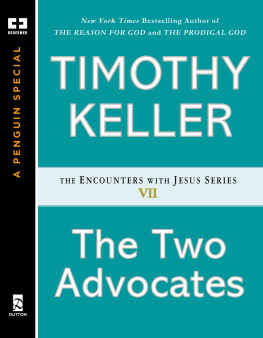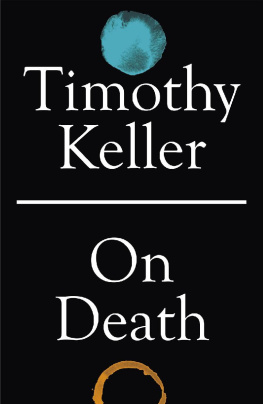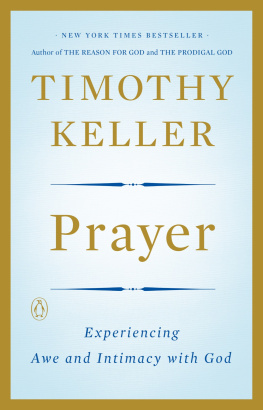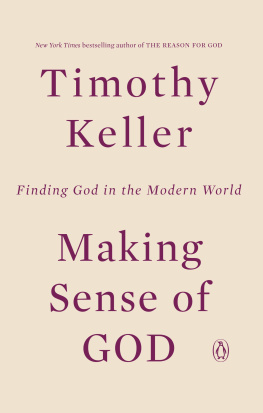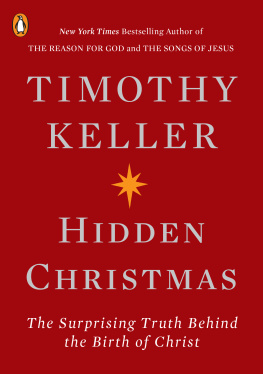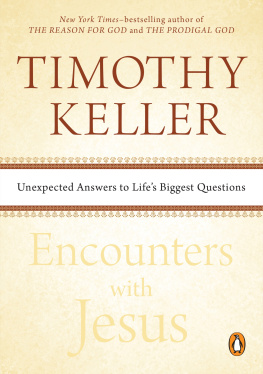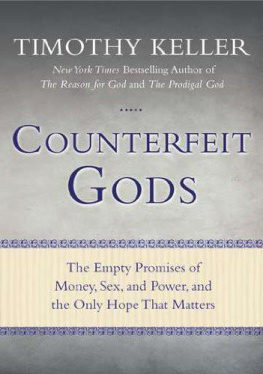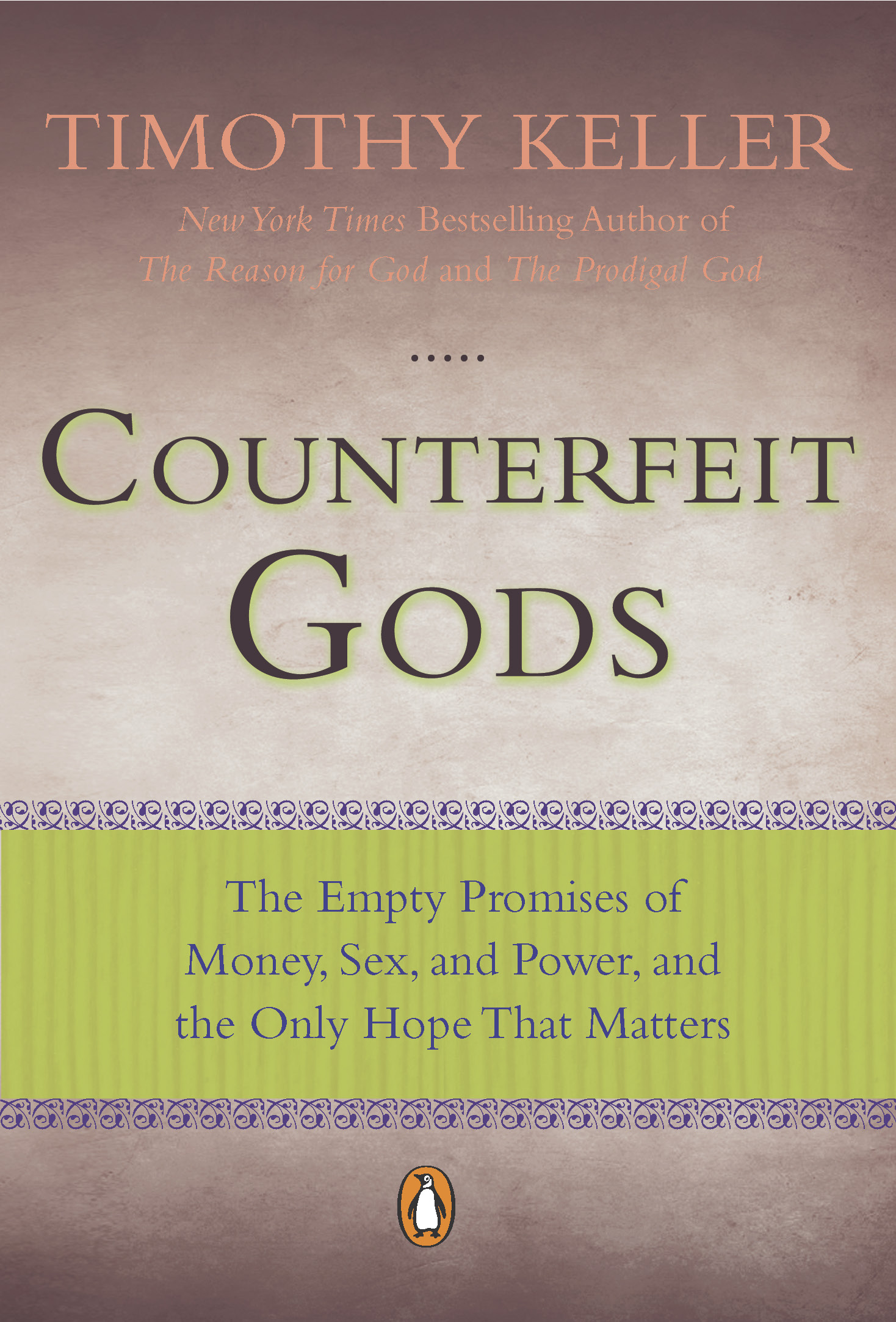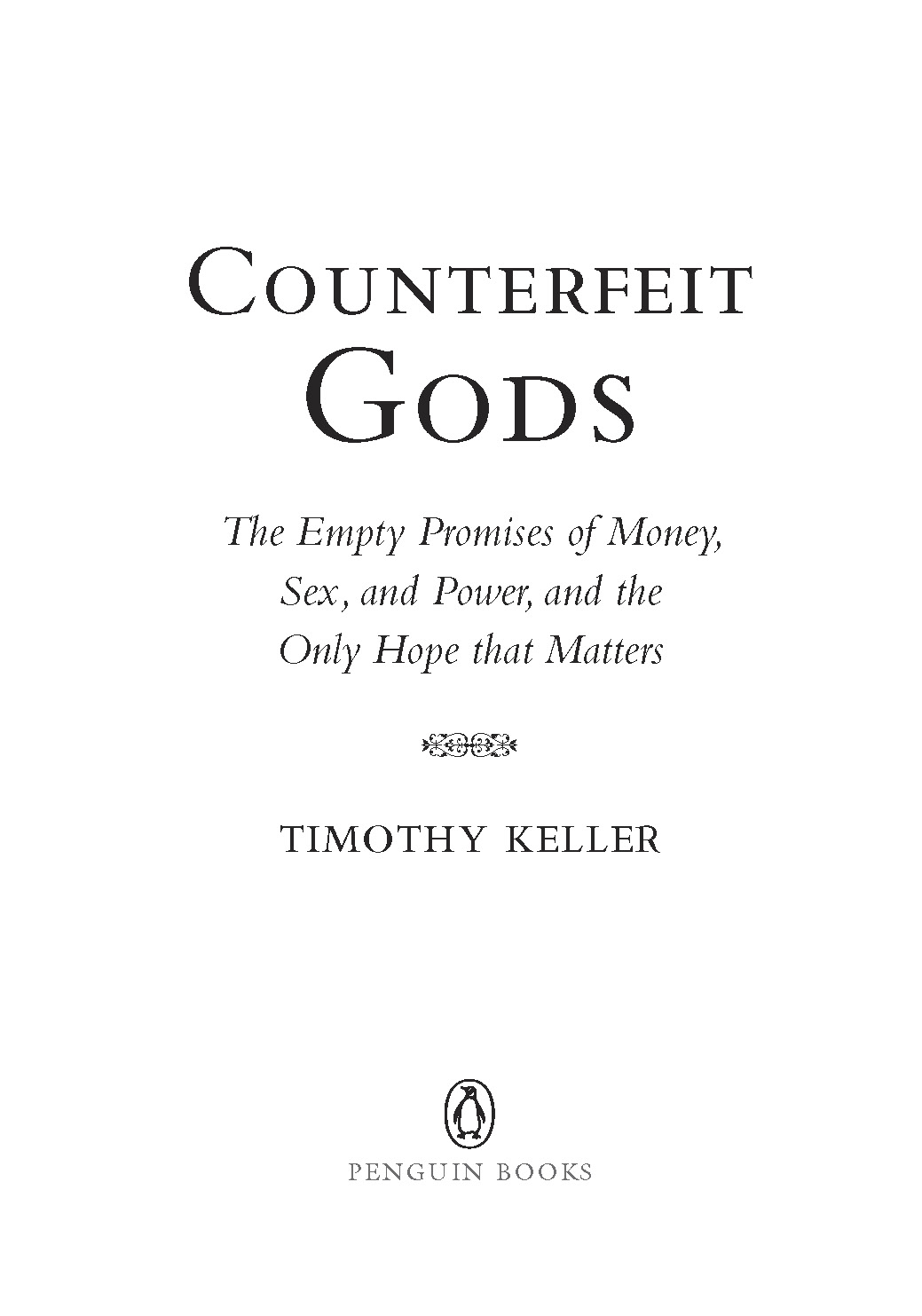Table of Contents
ALSO BY THE AUTHOR
The Reason for God
The Prodigal God
Generous Justice
Jesus the King
The Meaning of Marriage
Center Church
Every Good Endeavor
Walking with God Through Pain and Suffering
Encounters with Jesus
Prayer
Preaching
The Songs of Jesus
To my sons,
David, Michael, and Jonathan,
who can detect the counterfeit
INTRODUCTION THE IDOL FACTORY
There are more idols in the world than there are realities.
Friedrich Nietzsche, Twilight of the Idols
A Strange Melancholy
After the global economic crisis began in mid- 2008, there followed a tragic string of suicides of formerly wealthy and well-connected individuals. The acting chief financial officer of Freddie Mac, the Federal Home Loan Mortgage Corporation, hanged himself in his basement. The chief executive of Shel don Good, a leading U.S. real estate auction firm, shot himself in the head behind the wheel of his red Jaguar. A French money manager who invested the wealth of many of Europes royal and leading families, and who had lost $1.4 billion of his clients money in Bernard Madoffs Ponzi scheme, slit his wrists and died in his Madison Avenue office. A Danish senior executive with HSBC Bank hanged himself in the wardrobe of his 500-a-night suite in Knightsbridge, London. When a Bear Stearns executive learned that he would not be hired by JPMorgan Chase, which had bought his collapsed firm, he took a drug overdose and leapt from the twenty-ninth floor of his office building. A friend said, This Bear Stearns thing... broke his spirit. It was grimly reminiscent of the suicides in the wake of the 1929 stock market crash.
In the 1830s, when Alexis de Tocqueville recorded his famous observations on America, he noted a strange melancholy that haunts the inhabitants... in the midst of abundance. This strange melancholy manifests itself in many ways, but always leads to the same despair of not finding what is sought.
There is a difference between sorrow and despair. Sorrow is pain for which there are sources of consolation. Sorrow comes from losing one good thing among others, so that, if you experience a career reversal, you can find comfort in your family to get you through it. Despair, however, is inconsolable, because it comes from losing an ultimate thing. When you lose the ultimate source of your meaning or hope, there are no alternative sources to turn to. It breaks your spirit.
What is the cause of this strange melancholy that permeates our society even during boom times of frenetic activity, and which turns to outright despair when prosperity diminishes? De Tocqueville says it comes from taking some incomplete joy of this world and building your entire life on it. That is the definition of idolatry.
A Culture Filled with Idols
To contemporary people the word idolatry conjures up pictures of primitive people bowing down before statues. The biblical book of Acts in the New Testament contains vivid descriptions of the cultures of the ancient Greco-Roman world. Each city worshipped its favorite deities and built shrines around their images for worship. When Paul went to Athens he saw that it was literally filled with images of these divinities (Acts 17:16). The Parthenon of Athena overshadowed everything, but other deities were represented in every public space. There was Aphrodite, the goddess of beauty; Ares, the god of war; Artemis, the goddess of fertility and wealth; Hephaestus, the god of craftsmanship.
Our contemporary society is not fundamentally different from these ancient ones. Each culture is dominated by its own set of idols. Each has its priesthoods, its totems and rituals. Each one has its shrineswhether office towers, spas and gyms, studios, or stadiumswhere sacrifices must be made in order to procure the blessings of the good life and ward off disaster. What are the gods of beauty, power, money, and achievement but these same things that have assumed mythic proportions in our individual lives and in our society? We may not physically kneel before the statue of Aphrodite, but many young women today are driven into depression and eating disorders by an obsessive concern over their body image. We may not actually burn incense to Artemis, but when money and career are raised to cosmic proportions, we perform a kind of child sacrifice, neglecting family and community to achieve a higher place in business and gain more wealth and prestige.
After New Yorks governor Eliot Spitzer destroyed his career because of his involvement in a high-priced prostitution ring, David Brooks noted how our culture has produced a class of high achievers with rank-link imbalances. They have social skills for vertical relationships, for improving their rank with mentors and bosses, but none for genuine bonding in horizontal relationships with spouses, friends, and family. Countless presidential candidates say they are running on behalf of their families, even though their entire lives have been spent on the campaign trail away from their families. As the years go by they come to the sickening realization that their grandeur is not enough and that they are lonely. Many of their children and spouses are alienated from them. They seek to heal the hurt. They get into affairs or take other desperate measures to medicate the inner emptiness. Then comes family breakdown or scandal or both.
They had sacrificed everything to the god of success, but it wasnt enough. In ancient times, the deities were bloodthirsty and hard to appease. They still are.
Idols of the Heart
It would have been hard to make this case convincingly during the era of the dot-com boom and of the real estate and stock bubble of the last twenty years. However, the great economic meltdown of 2008-2009 has laid bare what is now being called the culture of greed. Long ago, Saint Paul wrote that greed was not just bad behavior. Greed is idolatry, he wrote. (Colossians 3:5) Money, he advised, can take on divine attributes, and our relationship to it then approximates worship and obeisance.
Money can become a spiritual addiction, and like all addictions it hides its true proportions from its victims. We take more and greater risks to get an ever diminishing satisfaction from the thing we crave, until a breakdown occurs. When we begin to recover, we ask, What were we thinking? How could we have been so blind? We wake up like people with a hangover who can hardly remember the night before. But why? Why did we act so irrationally? Why did we completely lose sight of what is right?
The Bibles answer is that the human heart is an idol factory.
When most people think of idols they have in mind literal statuesor the next pop star anointed by Simon Cowell. Yet while traditional idol worship still occurs in many places of the world, internal idol worship, within the heart, is universal. In Ezekiel 14:3, God says about elders of Israel, These men have set up their idols in their hearts. Like us, the elders must have responded to this charge, Idols? What idols? I dont see any idols. God was saying that the human heart takes good things like a successful career, love, material possessions, even family, and turns them into ultimate things. Our hearts deify them as the center of our lives, because, we think, they can give us significance and security, safety and fulfillment, if we attain them.


